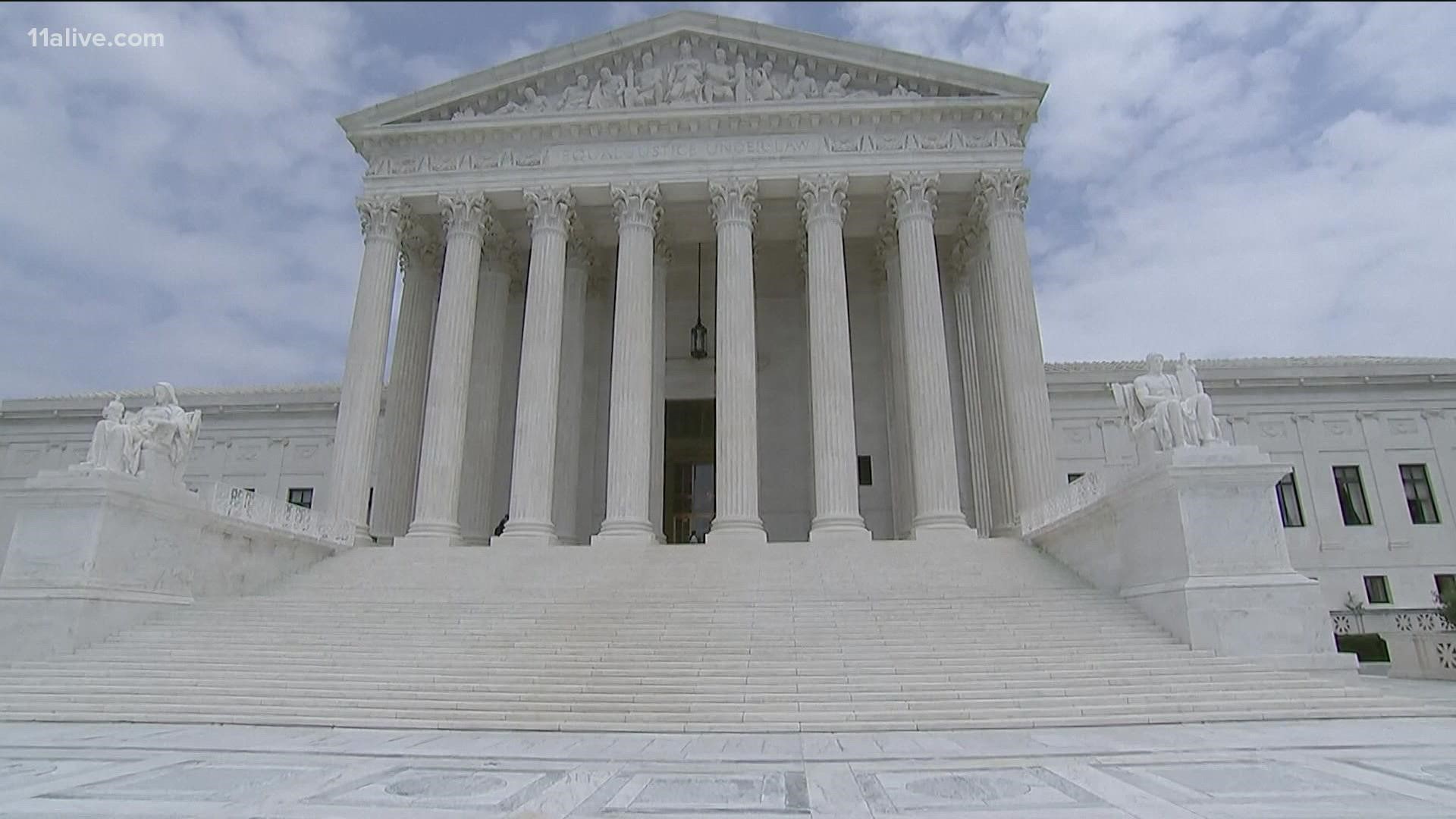TYLER, Texas — On Jan. 22, 1973, Roe v. Wade, or 410 U.S. 113, received a majority vote in the Supreme Court.
The high court ruled the U.S. constitution protects women’s access to abortion care to without excessive government restriction across the nation.
Forty-nine years later, that ruling has continued to remain polarizing and is being challenged in multiple states.
With the passing of Texas Senate Bill 8, abortions are banned beyond the point where a doctor can detect a fetal heartbeat, which can happen as early as six weeks into a pregnancy. SB 8 is one of many “Heartbeat Bills” that have been enacted across the country within the last five years, but what makes it different is it allows private citizens to sue abortion providers and those who aid women in getting an abortion beyond what the law allows.
Separately, the abortion case from Mississippi being reviewed by the Supreme Court in June puts the legality of Roe in peril. If justices vote to affirm that case, it would overturn Roe v. Wade and leave it up to states to regulate abortion access. Texas and 20 other states have “trigger laws” that would immediately ban or severely restrict abortion access if Roe v. Wade is overturned.
Pregnant women in Texas who are seeking in an abortion beyond six weeks gestation are forced to seek the procedure in surrounding states, like Oklahoma, Louisiana or New Mexico. Groups like Fund Texas Choice provide financial aid to women who need assistance affording travel.
There are no abortion providers in East Texas. The nearest in-state clinics are located in Dallas and Houston. Although there is a Planned Parenthood in Tyler, it does not offer abortion services. The only service it offers regarding abortions is a referral service to a clinic elsewhere in Texas.
Pro-life groups, like Right to Life East Texas, remain in favor of limiting abortion access in East Texas. Mark Lee Dickson, Director of Right to Life East Texas, believes he is standing up for the unborn children’s voices that have been silenced for the last 49 years.
“Quality begins in the womb," said Dickson. "We believe that unborn children are human beings made in the image of God. [We are] standing for life."
Groups like Right to Life and the Sanctuary Cities for the Unborn are proponents of resources like family planning and counseling in lieu of abortion access.
Planned Parenthood is a nonprofit organization that provides health services for women, including abortions. The organization says it is limited in what it can provide to Texas women since the heartbeat law took effect September 1, 2021.
“Here in Texas, we already see what a post-Roe world looks like,” says Sarah Wheat, spokesperson for Planned Parenthood of Greater Texas. “Planned Parenthood trusts Texans to make private medical decisions about their healthcare without interference from local politicians and will continue to advocate on behalf of the patients we serve in Tyler and throughout Texas.”
Pro-choice advocates believe restricting abortion access poses a threat to women's safety by leading some to seek abortions without the oversight of a medical procedure. So-called “back alley abortions” are the leading cause of maternal deaths for women, making up 13% of all deaths. The unapproved procedure can also lead to long-term health complications.
Texas has the highest death rate for women in the nation, landing on 18.5 per 100,000 live births of children. When access to abortion care is restricted or taken away fully, that number skyrockets and leads to a 21% increase of pregnancy-related deaths

